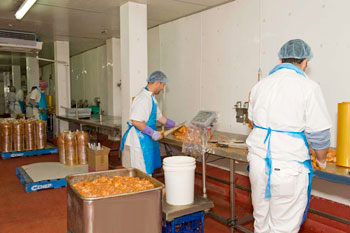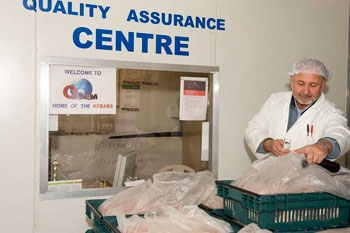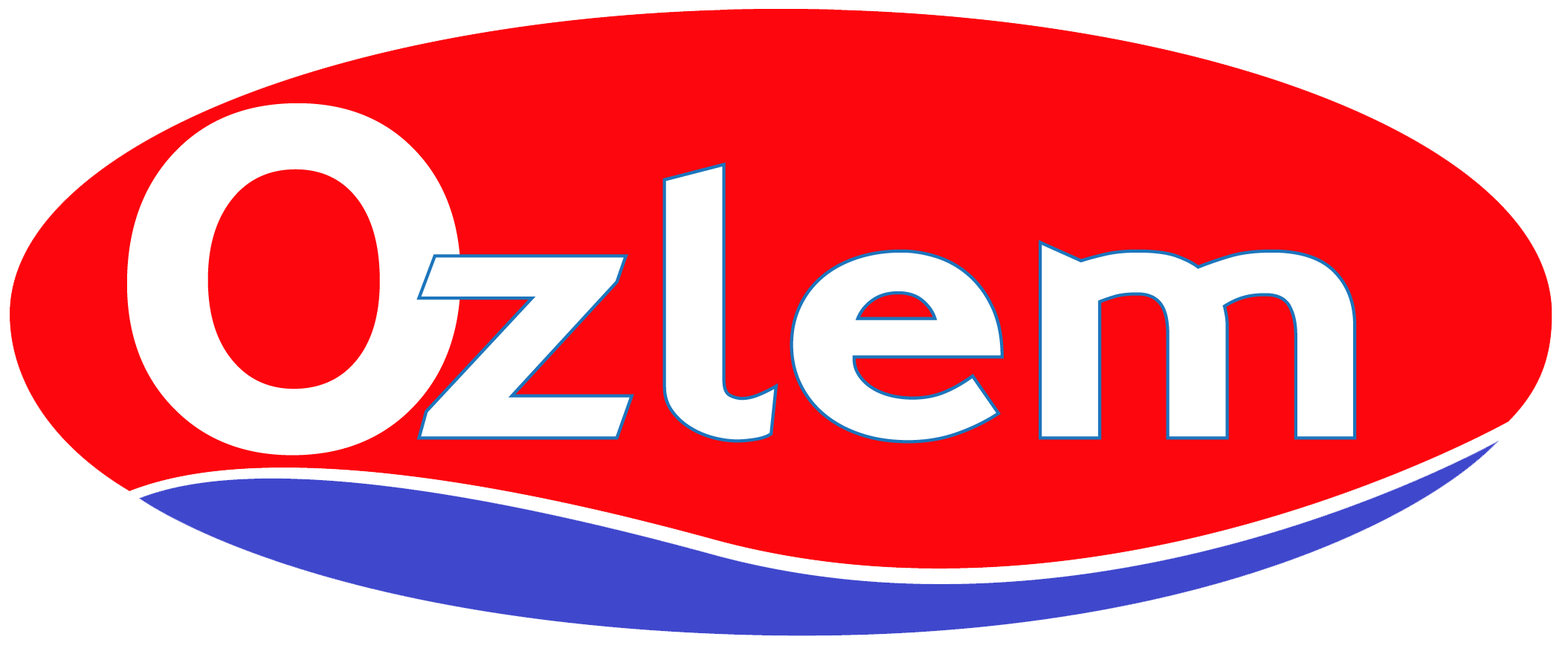
Cleanliness
We are legally obliged to prepare food in accordance with the Food Safety Standards.
These general practices are followed to prepare food hygienically and prevent food contamination:
- Washing and thoroughly drying of hands before handling any food or equipment
- Avoiding handling ready to eat foods with our hands but using other implements instead.
- Not handling food or equipment when we are ill.
Temperature Control
 Temperature control in our industry means maintaining food at a temperature of 5°C, or below in the use of meat & poultry. This is necessary to minimise the growth of infectious micro-organisms & bacteria in the food.
Temperature control in our industry means maintaining food at a temperature of 5°C, or below in the use of meat & poultry. This is necessary to minimise the growth of infectious micro-organisms & bacteria in the food.
The Standard requires us to ensure that the temperature of these raw products are 5°C when we:
- initially receive the products into our business; and
- store, display and transport the finished goods.
We make sure of this by using a thermometer with a probe that can measure the internal temperature of food because the surface temperature may be warmer or cooler than the temperature of the rest of the food.
After distributing the products to the shops they must comply by the same standards in order to keep the meat bacteria free. Since shops intend to cool and use the meat later, they need to cool the food to 5°C or below as quickly as possible. The less time the cooked meat is between 5°C and 60°C during cooling, the less opportunity there will be for food-poisoning bacteria to multiply.
If you have food that is taking longer than six hours to cool, the following suggestions may assist you to cool food rapidly:
- Reduce the bulk of the food by dividing it into smaller and/or shallower containers.
- Cut large joints of meat and poultry into portions before cooling.
- Ensure there is space around food containers so that the cold air in the refrigerator or coolroom can circulate freely.
If you wish to reuse meat you are required to reheat it rapidly to 60°C or hotter. This requirement applies to food (such as kebabs) that you want to hold for display to serve customers.
Regulations
The NSW meat industry is regulated by the Food Act 2003 (NSW) and Food Regulation 2004. The Food Act brings into force the Food Standards Code and meat businesses must comply with relevant parts.
The Regulation imposes food safety programs on all red meat, poultry, and other meats handled at:
- retail meat premises
- meat vans
- meat processing plants
Licensing
Certain parts of the NSW food industry are regulated under the Food Regulation 2004, including:
- businesses that conduct food service to vulnerable populations
- high-priority plant product businesses
- businesses that handle or process meat
- dairy producers, factories and vendors
In our case, we are required under legislation to have a licence with the NSW Food Authority in order to run our food business. Businesses that operate without the appropriate licence from the NSW Food Authority are committing an offence under the Food Act and may be prosecuted. Since we do distribute or transport meat & meat products we have obtained our NSW Food Authority licence. Licensing under this Regulation ensures that we have the capacity to produce safe food before the food is supplied to the market.



 Temperature control in our industry means maintaining food at a temperature of 5°C, or below in the use of meat & poultry. This is necessary to minimise the growth of infectious micro-organisms & bacteria in the food.
Temperature control in our industry means maintaining food at a temperature of 5°C, or below in the use of meat & poultry. This is necessary to minimise the growth of infectious micro-organisms & bacteria in the food.